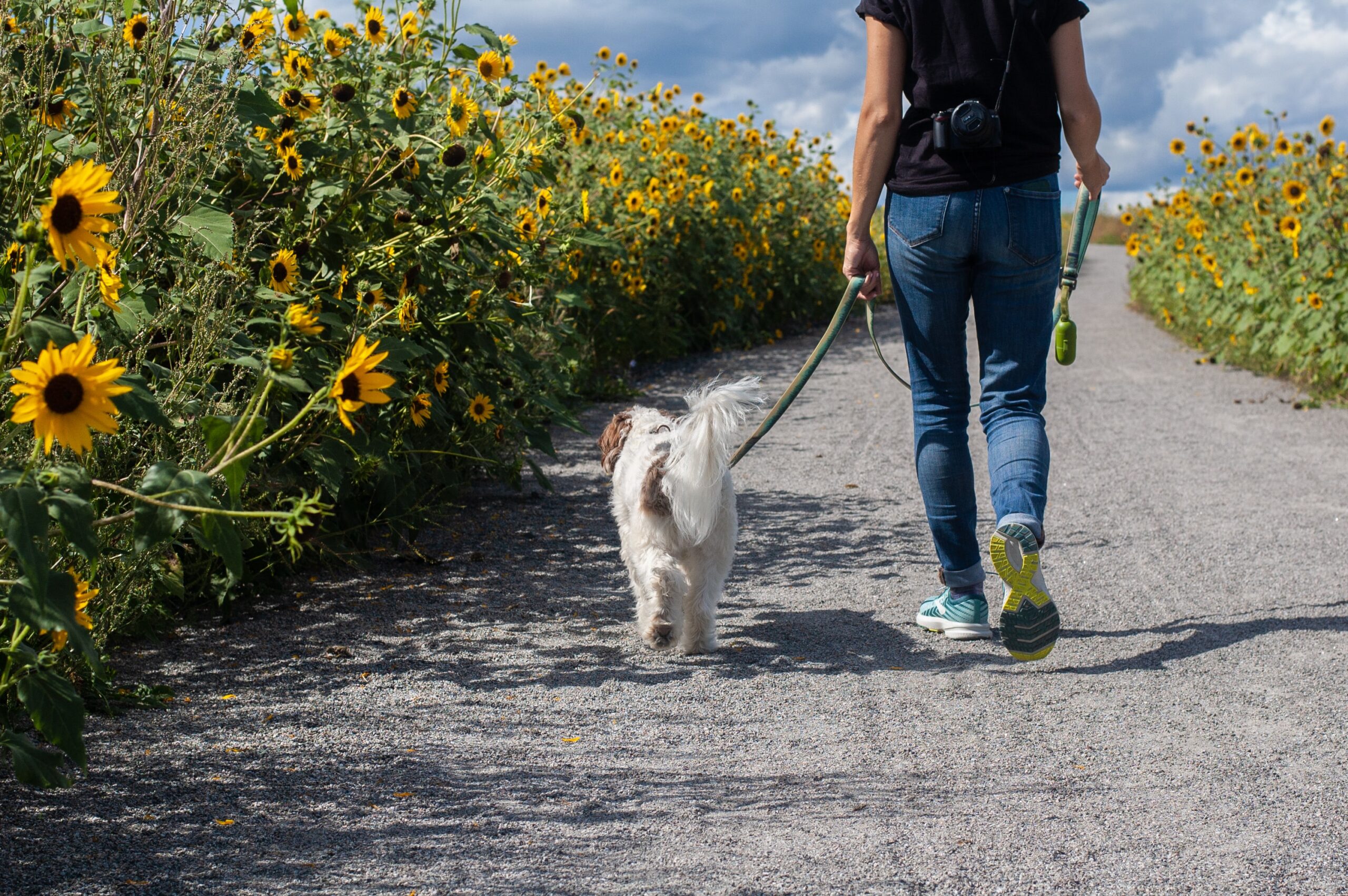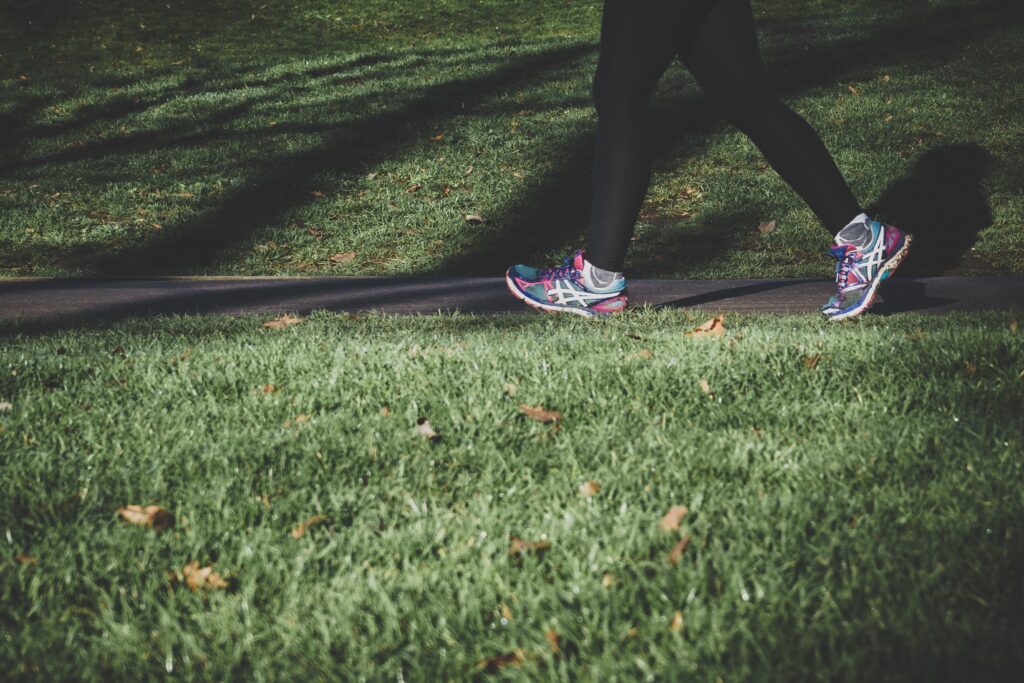
Walking for weight loss can be a fantastic way to shed extra pounds. It is free and can be a peaceful way to work out and you also get some time to yourself or socialise with a friend.

Benefits of walking for weight loss
Walking I good for weight loss because:
- Walking is low impact.
- It is great for all levels of fitness.
- You can integrate it into your everyday life.
- It can be increased or decreased in challenge.
- You do not need equipment and it is free.
- You can walk alone or socialise with a friend.
How can walking help with weight loss?
Walking is a great way to lose weight and a fantastic introduction to exercise.
The reason walking is good for weight loss is the way your body fuels your exercise. When we do an activity at a moderate pace over a longer period, our body turns to our stored body fat for fuel.
Increasing the amount you walk means that you burn additional calories throughout your day. Provided we are not eating a surplus of calories, every time you walk, you are using up that stored energy that would otherwise sit in your body fat stores.
Will walking improve my health?
Definitely! Walking at a pace that makes you slightly breathless will increase your cardiovascular endurance.
When we begin to get breathless during our activity, it is a sign that our heart is beating faster. This increased heart rate is due to a higher demand for blood to our muscles. Our muscles take oxygen from the blood, so to meet the demand, we breathe harder, taking in more oxygen.
This works out your heart and lungs. The increased movement of blood around the body improves your circulation and more oxygen circulating the body brings greater health benefits to all your vital organs and tissues. Even your skin, hair, and nails will get a boost!
There is a direct correlation. The harder you need to breathe during activity, the more energy you are using. A 2014 study discovered that for every 10kg of fat lost, 8.4kg is excreted as C02 by the lungs.
You can increase the challenge of walking by upping your pace. You’ll also get to your destination faster!
Getting started
It’s a great idea to think about how you will make walking part of your day, especially if you are short on time.
Are you going to create some time for a walking session on a daily or weekly basis? If you do not have time, is there a way to make it part of your day-to-day routine?
Some great ways to integrate walking each day:
- Walk to work
- If you work too far away, can you walk to the train or bus station?
- Go for a walk in your lunch break.
- Walk the kids to school instead of driving.
- Use the stairs instead of taking the elevator.
- Walk to the shops, appointment or other places instead of driving.
You may not think that these small walks will amount to much, but when you begin prioritising walking over driving, these small bouts of activity can soon add up.
I already work out, is walking worth it?
Yes. Try to walk as much as possible, despite being quite active. It’s fantastic for staying active on recovery days, without overdoing it.
You will also benefit from increasing your heart rate regularly. Movement is key for cardiovascular health, keeping the joints moving, and boosting your immune function. Walking is also fantastic for your mental well-being.
Taking some time out from a busy stressful day, even for ten minutes, will leave you feeling energised and refreshed.
Regardless of your activity level, adding walks into your everyday life will bring several benefits to your health and wellbeing. It is easy to do and will contribute to your health and weight loss goals.
